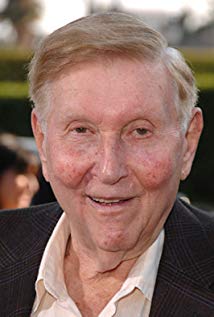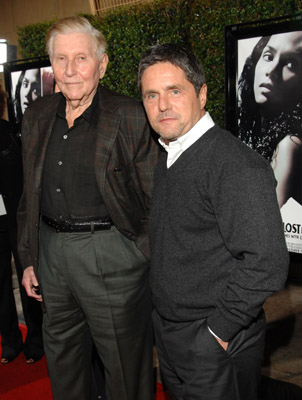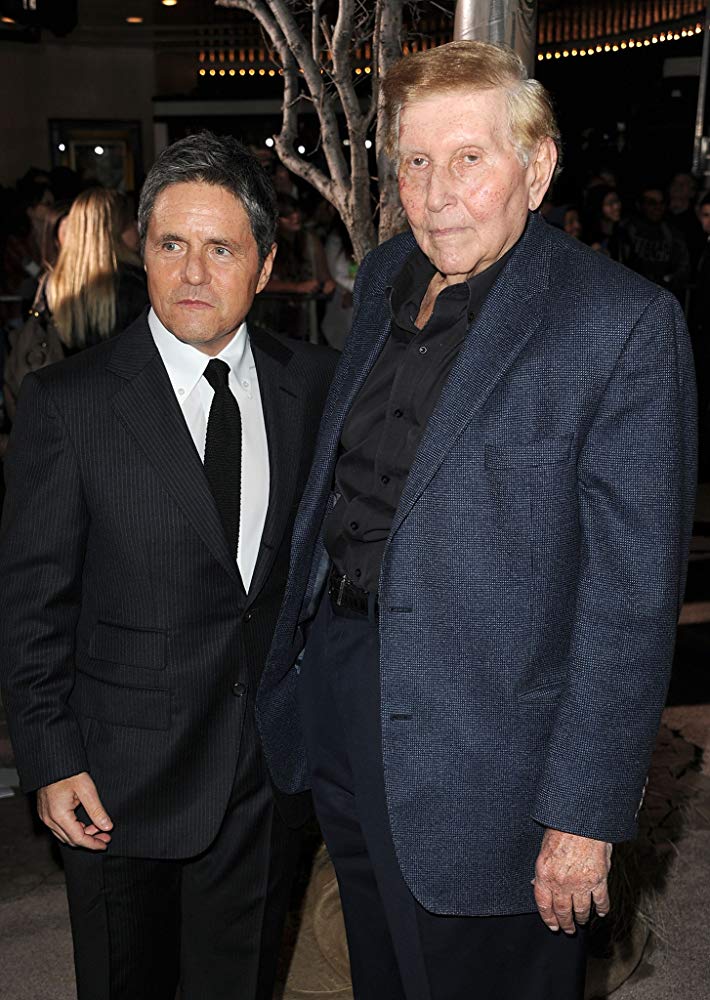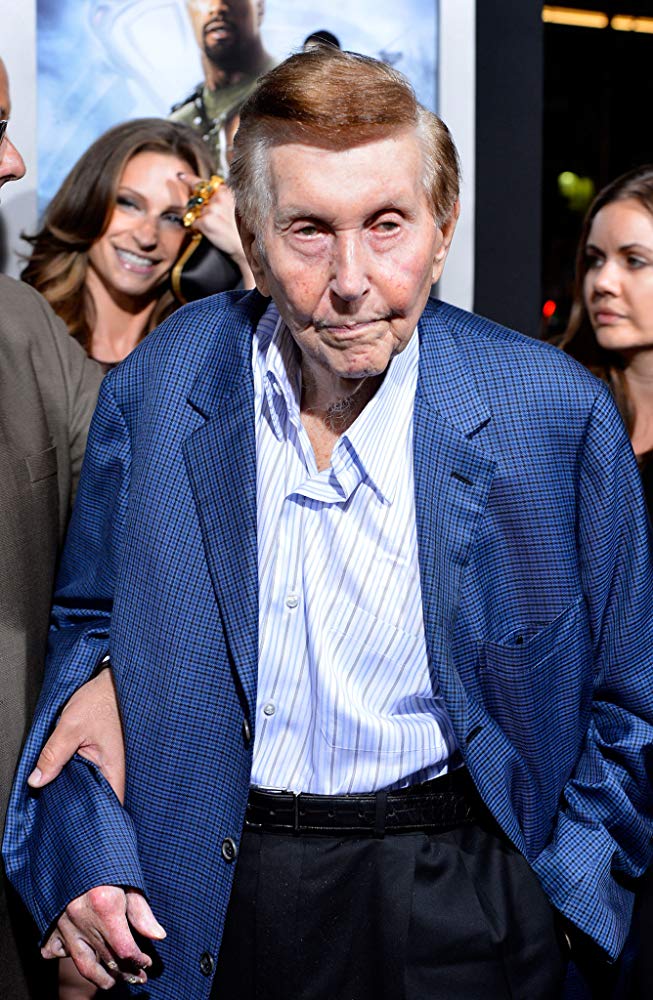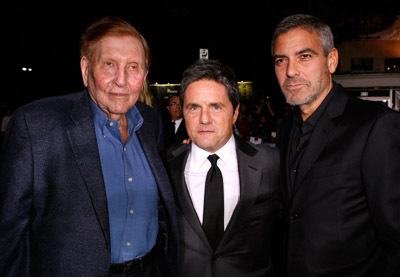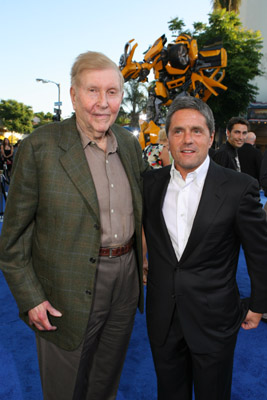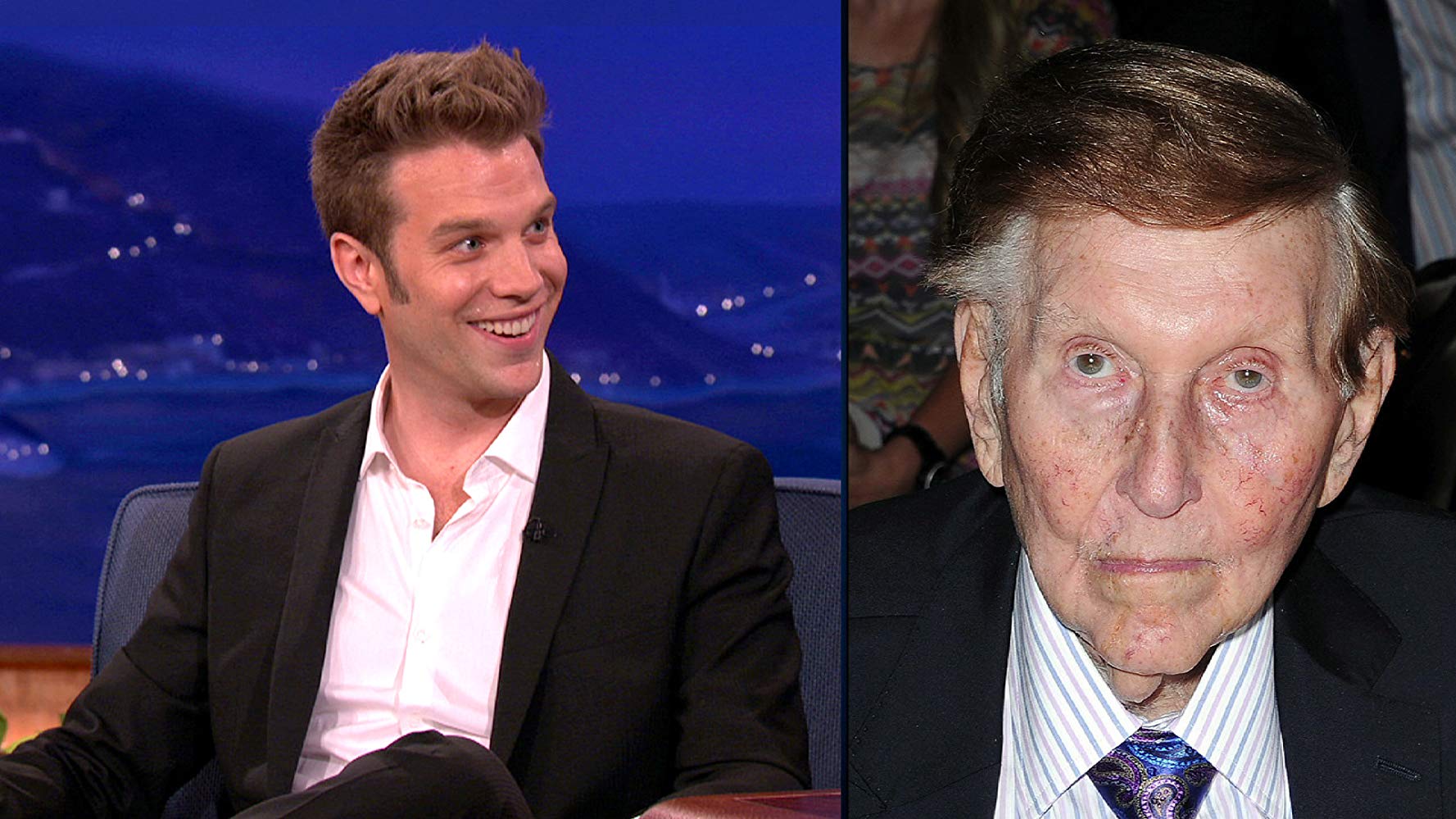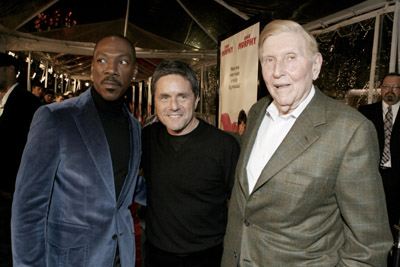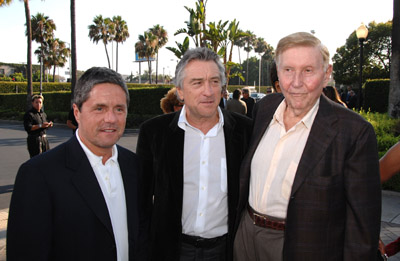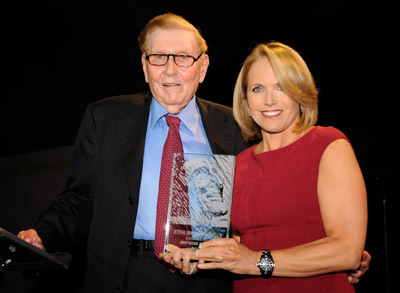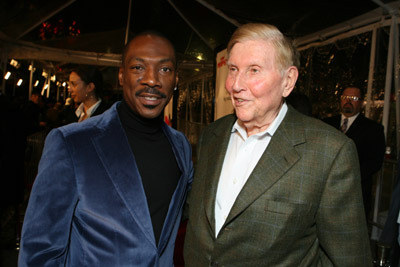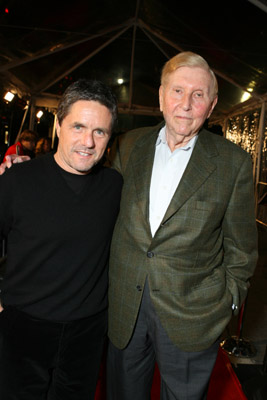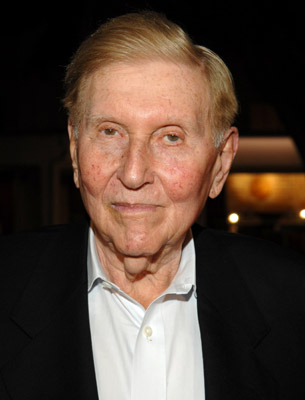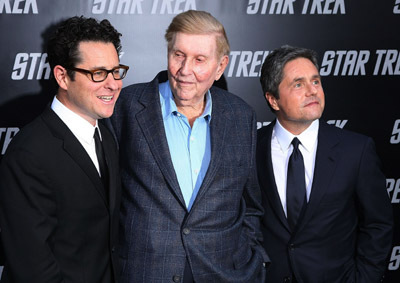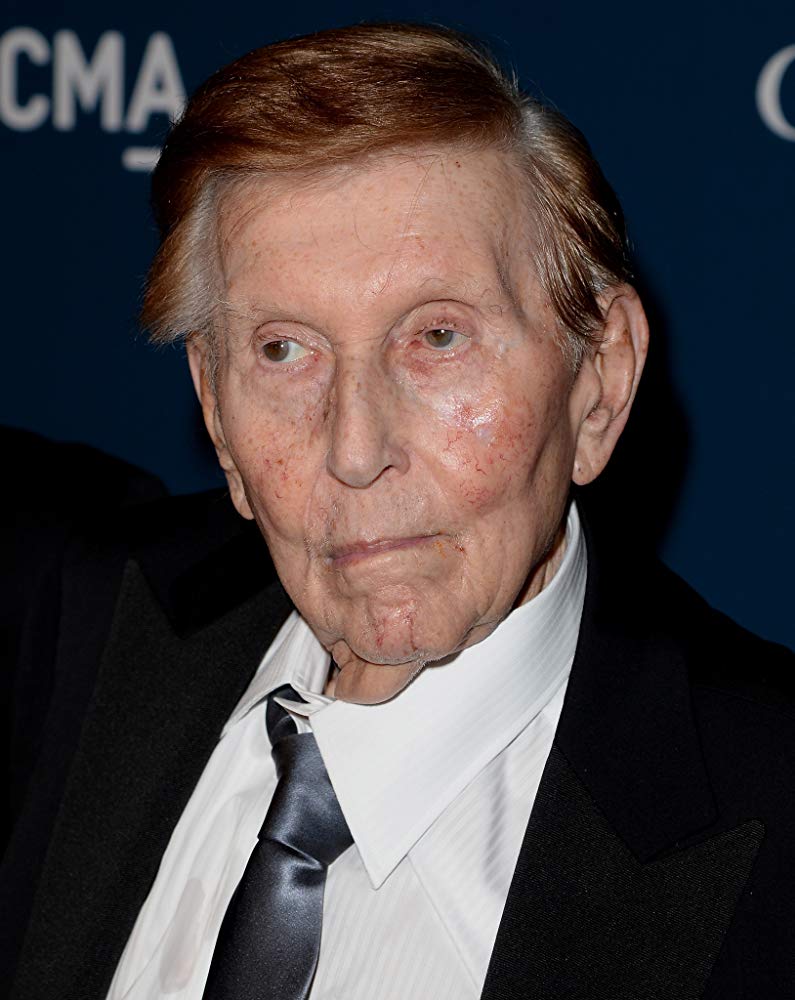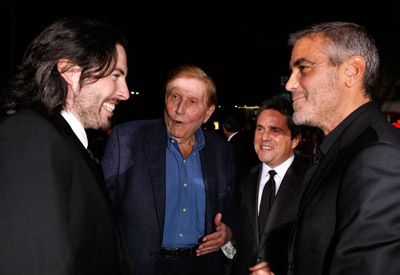Viacom Chairman Sumner Murray Redstone, the multi-billionaire who is the controlling shareholder of media conglomerate Viacom and of CBS Corp., was born Sumner Murray Rothstein on May 27, 1923, in Boston, Massachusetts, to Michael Rothstein. His father created National Amusements, a chain of three drive-in theaters, in 1936, after starting out with...
Show more »
Viacom Chairman Sumner Murray Redstone, the multi-billionaire who is the controlling shareholder of media conglomerate Viacom and of CBS Corp., was born Sumner Murray Rothstein on May 27, 1923, in Boston, Massachusetts, to Michael Rothstein. His father created National Amusements, a chain of three drive-in theaters, in 1936, after starting out with one drive-in in Valley Stream, New York.Sumner Redstone attended Harvard College after graduating at the top of his class from the elite Boston Latin School, completing his bachelor of arts degree in three years during World War II, when college years were accelerated so that graduates could serve in the military. Redstone served in the army during World War II, working at the Pentagon decoding Japanese messages. After being demobilized, he remained in Washington and matriculated at Georgetown University Law School before transferring to Harvard Law. After graduating from Harvard Law with an LL.B, he returned to Washington, DC.After working for the U.S. Department of Justice in San Francisco, Redstone went into private practice for several years before eventually returning to his father's National Amusements, which he turned into a major motion picture exhibitor in New England. He first made National Amusements one of the premier drive-in circuits in the country before turning to indoor exhibition. In 1964 National Amusements started building multi-screen theaters, originally called "twin theaters". These developed into the "multiplexes" and "megaplexes" that made National Amusements one of the top indoor exhibitors in the country, a great repositioning of the company, and a fortuitous one as the drive-in circuit faded away.Redstone branched out of exhibition, as he believed that controlling the content was the way of the future--though distribution channels constantly change (from movie theaters, to TV, to cable, to videotape, to DVD), content remains constant. With this philosophy he began investing in motion picture production companies, turning a profit on buying, holding and selling shares.In 1987 Redstone engineered a hostile takeover of Viacom International by National Amusements. Viacom began as a subsidiary of CBS, syndicating programs for the network. However, when the FCC in 1971 established its now rescinded "fin-syn" rule (that television networks could not syndicate programs they produced), Viacom was spun off from CBS. As a separate company Viacom continued to syndicate most of CBS' TV programs but was free to syndicate programs for others. After syndicating programs for cable TV channels, Viacom itself moved into cable and acquired MTV Networks in 1985. It represented a good platform from which to develop a content-distribution behemoth.After winning voting control of Viacom, Redstone engaged in a series of acquisitions to make Viacom one of the top players in the modern media industry. During the 1990s Viacom eventually would own Columbia Pictures, Twentieth-Century Fox, Orion Pictures and Paramount Pictures, making huge profits from the sale of all but Paramount, which would become the motion picture arm of the conglomerate.Paramount Communications, parent of Paramount Pictures, was acquired in 1993. Although criticized initially for paying too much for the company, Redstone helped pay for the acquisition by selling off some of its assets, including Madison Square Garden and its cable TV properties, and Simon & Schuster's educational publishing units. The sale of Paramount Communications' assets made the acquisition substantially profitable.Redstone then acquired Blockbuster Entertainment, which gave Viacom Aaron Spelling's TV production company and a huge library of films, most of which were absorbed into Paramount Pictures' own library. Blockbuster eventually was spun off into its own independent entity. In 2000 Viacom pulled off arguably its most important acquisition when it acquired its former corporate parent, CBS Corp. In December of 2005 Paramount acquired Dreamworks SKG for an estimated $1.6 billion.Under Redstone's management, Viacom has assembled one of the largest and most diversified media conglomerates, covering TV broadcasting, cable TV, radio broadcasting (Infinity Broadcasting), outdoor advertising, music publishing, motion pictures, television production, and its original business of TV syndication (King World Productions, which syndicates The Oprah Winfrey Show (1986)).In 2005 Viacom International was split into two companies, Viacom and CBS Corp. Redstone is chairman of both the new Viacom and of CBS, controlling a majority of both firms. Currently, Redstone controls over 70% of the voting stock of Viacom, which is a subsidiary of National Amusements, his private family-owned company.National Amusements, whose president is Sumner's daughter (and probable successor) Shari E. Redstone, also owns a controlling interest (70%) of video-game maker Midway Games. In addition to its controlling interests in Viacom and CBS Corp., National Amusements is an international chain of movie theaters with 1,500 screens operated by the chains Showcase Cinemas, Multiplex Cinemas, KinoStar and Cinema de Lux banners in the U.S., the U.K., South America and Russia. It additionally operates IMAX theaters in the U.S. and Argentina. The firm is also a partner with AMC Theatres in the on-line ticketing firm "movietickets.com".Redstone published his autobiography, "A Passion To Win" (co-written by Peter Knobler), was published in 2001 by Viacom's Simon & Schuster subsidiary. In 2006, he was ranked #63 on Forbes magazine's list of the 100 richest people in the world, with an estimated worth of $7.7 billion.
Show less «

